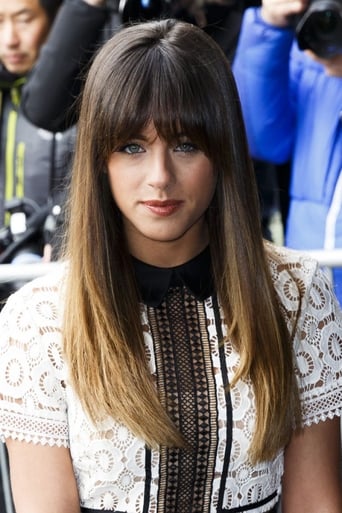geffers
It's hard to summarise 30 years of Grange Hill - so many characters, and story lines. At the time of writing, the last series is due to be shown, with a substantially altered target audience of younger children. Probably as a direct result of this, the show itself has been cancelled. Grange Hill started in 1978 with a nine part series. After that there were typically 20 episodes, sometimes fewer, sometimes more. Grange Hill is set, originally anyway, in North London - a fictional suburb called Northam, postcode region N24 in one episode, something different in another. The series' strength is its sharp writing, and strong element of humour in among the serious themes.The 30 series (ignoring Series 31 for the moment) can be divided into three eras, which have quite a different feel. The first era, set at various real schools around London, lasts seven years and is the time when we have Tucker, and later Gripper, Zammo and Roly. Then there's a long middle era where the series is predominantly set at the BBC's Elstree Studios: at this point the series has matured into a mixture of the fun and the serious: the writers don't shy away from difficult subjects, from the dangers of firearms, the dangers of AIDS, alcoholism, shoplifting, the sorrow of losing one's mother or father, diseases such as ME, sexual assault and Internet grooming. The final era occurs when the production moved to Liverpool, in 2001. I fear this was a grave mistake as the series becomes something else - not necessarily something bad, but the essential "Londonness" has gone. The style changes at this point, you notice that you see very few external shots - views of home life are minimal after series 26.I don't believe there's any year of Grange Hill without some merit. For me, Series 4 and 30 are pretty awful, perhaps the worst of the bunch. In Series 4, the dominant characters are still Tucker, and his male friends, with Trisha and Cathy on the female side, and it's all just a bit stale. There are new characters coming up, but they don't quite make an impact before the next series - Suzanne and Gripper are just too young yet - then Series 5 starts with a host of new characters who breathe life back in. Series 30 is weak because it seems to be regurgitating old ideas from just two years before - Alex's bullying is a repeat performance of the brilliant series 28, in which the headmistress adamantly promised to stop such things, after all, Alex came close to death. And yet, here it all is again, and the headmistress noticeable by her absence - a great gaping hole - she's still in the school, apparently, just never seen. Emma's storyline with her pregnancy is slow to gather pace. There's very little to recommend Series 30 - we've lost Lauren Bunney who was just so brilliant as Annie a couple of years earlier. Also, there are just no classroom scenes at all and too few teachers for it to feel like a large comprehensive. Baz's death seems just stupid, and unnecessary. But even in such a dire series, there are moments which are good - thanks to the great acting of Kirsten and Chris, playing Tanya and Togger. Kirsten can make one facial gesture, and you know what her character is thinking, and meaning. Daniella too is great here. The younger set show great promise too: Mia Smith, and Jack McCullen (Chloe and Tigger) are brilliant. In fact that's one thing that's greatly improved since the series began - the acting of the younger performers, a little wooden in the early years, and so much better now. Perhaps Series 30's problem is money - it feels like they had only half the cash to spend, and couldn't afford to build and strike enough sets, so made do with what they had available.There's a certain amount of political correctiveness in Grange Hill: it's commendable, but at the same time a little unrealistic. For instance, Rachel's Cerebral Palsy goes almost unmentioned - of course this is how things ought to be in an ideal world, but probably not what happens in schools. Francesca Martinez does, I think, rise above being just an example of someone with her disability to become a character who plays a part in her own right over several years. Her role in the series is never one of a girl fighting with the troubles her physical body cause her. In the same way, Holly, deaf, but stunningly beautiful, has story lines like everyone else, except that her lip-reading is an additional benefit rather than her deafness being a negative thing. Racism occurs occasionally, and is a major storyline in series six, with Gripper Stebson picking on a Sikh boy. In later years there's a free mix of people from different ethnic backgrounds, and no point made: people's skin colour is irrelevant, and that's how it should be. The same is true of homosexuality - one of the teachers "comes out", but once the prejudices are brought into the open, nothing more is made of that aspect of the teacher. The swearing, or lack of it, is unrealistic: this is the dilemma of a children's show. The viewer can mentally translate the mild 1950's style of language of "Flippin' 'Eck" into something stronger perhaps! In November 2007, the first four series were released to DVD. Many people bought the series remembering Tucker Jenkins. It doesn't seem likely that more series are going to be released, but perhaps there is the chance of some kind of paid downloads becoming available. There was some disappointment with the DVDs - partly because of cuts for copyrighted music, and also because the picture quality seemed affected by some kind of filmizing process.
Buck Aroo
I remember watching the very first episode of Grange Hill, when Tucker Jenkins the-soon-to-be star of the series, went to meet his friend Benny Green before their first day at school. That was in 1978. I soon became hooked on the series, like most of my age group back then, and was grateful that it was shown twice a week, which was-and still is-unusual for TV drama. Through subsequant episodes, we followed the exploits of the many characters who passed through the school's gates. And, we also could relate to the many problems that the characters experienced, as most of us at some time or other, had been subjected to bullying, peer pressure, the problems of divorce, and even drug abuse.The BBC had to endure the scourge of many complaints from parents and various groups. And they also had the likes of people such as Mary Whitehouse, critisising them for corrupting Britain's youth. I remember that the BBC once screened a special debate programme called Speaking Out, in which actors from the series, and real pupils and teachers from schools discussed the issues sometimes covered in Grange Hill. At the time, there was a major fuss because a female character in the series, played by Paula Ann Bland, wanted to go on the pill. Shock Horror!!Well, it was a primative time 1982 y'know.I regard the classic period of Grange Hill to be somewhere between 1979 to 1989, and since then, I have stopped watching.
GilraenEstel
When you were a teenager, it always felt as if the world was against you. No matter what you did, how much you tried to impress people - there was always something wrong, someone to put you in your place.That is the brilliance of Grange Hill - it depicts British school life excellently: the everyday hum-drum of moving from one lesson to the other; the mind-numbing, soul-crushing hell hole that you have to attend every day for five years; the peer pressure and the bullying and most of all, realising that this is your life and it's never going to change. (And no, I didn't like school much!)When you were at school, there was always kids whose parents were getting divorced, gay, on drugs, seriously depressed, victim of abuse or pregnant. Grange Hill doesn't just present the problem, it explores how that problem came about, the effect on that character and most of all the reaction of their peers when it all comes out (which it always does). There is always something compulsive about watching on the tele what you know to be happening all around you, what happens to your closest friend or worst enemy - because it's real.Compulsive viewing for any one who is/was a teenager.





